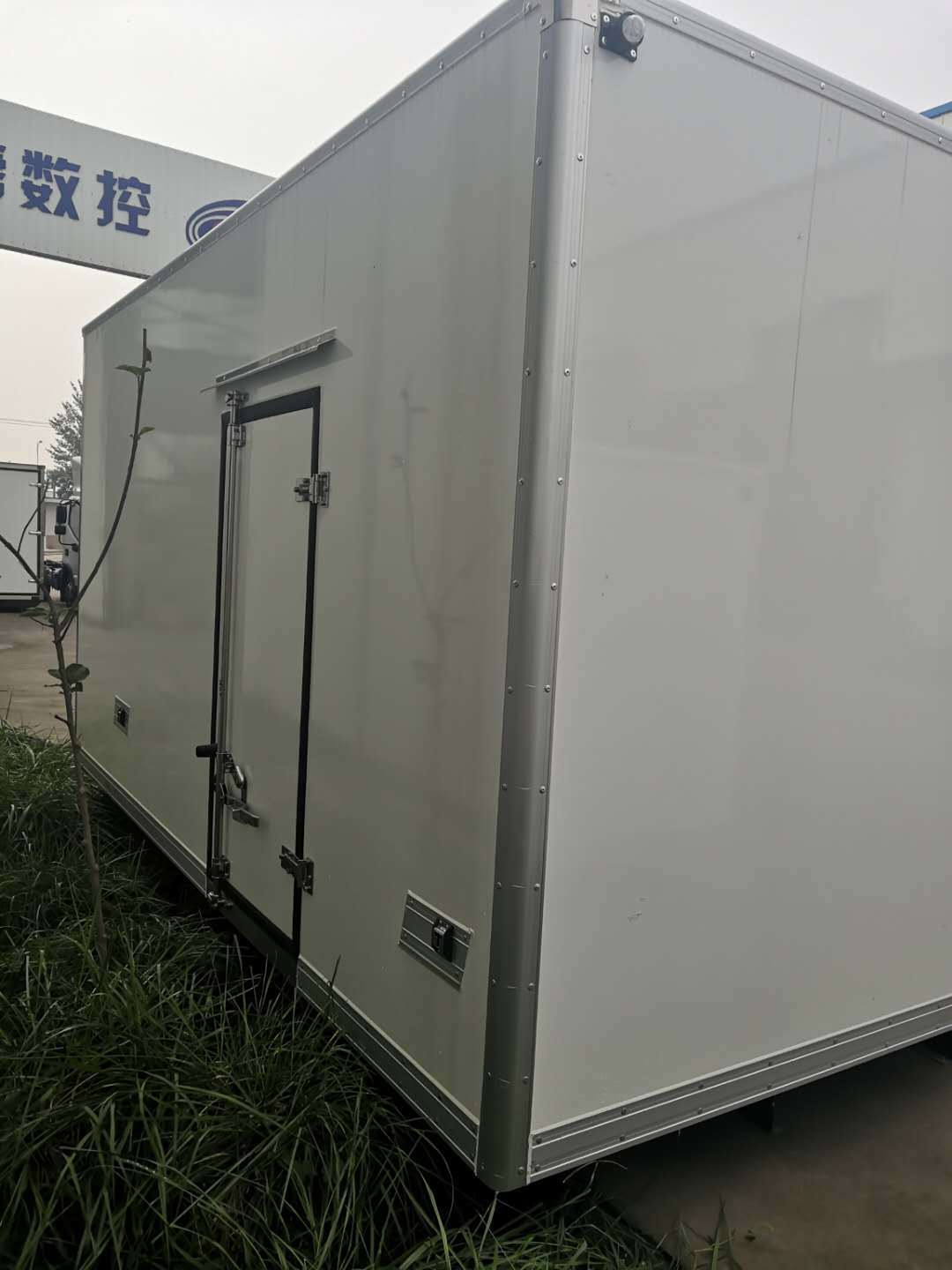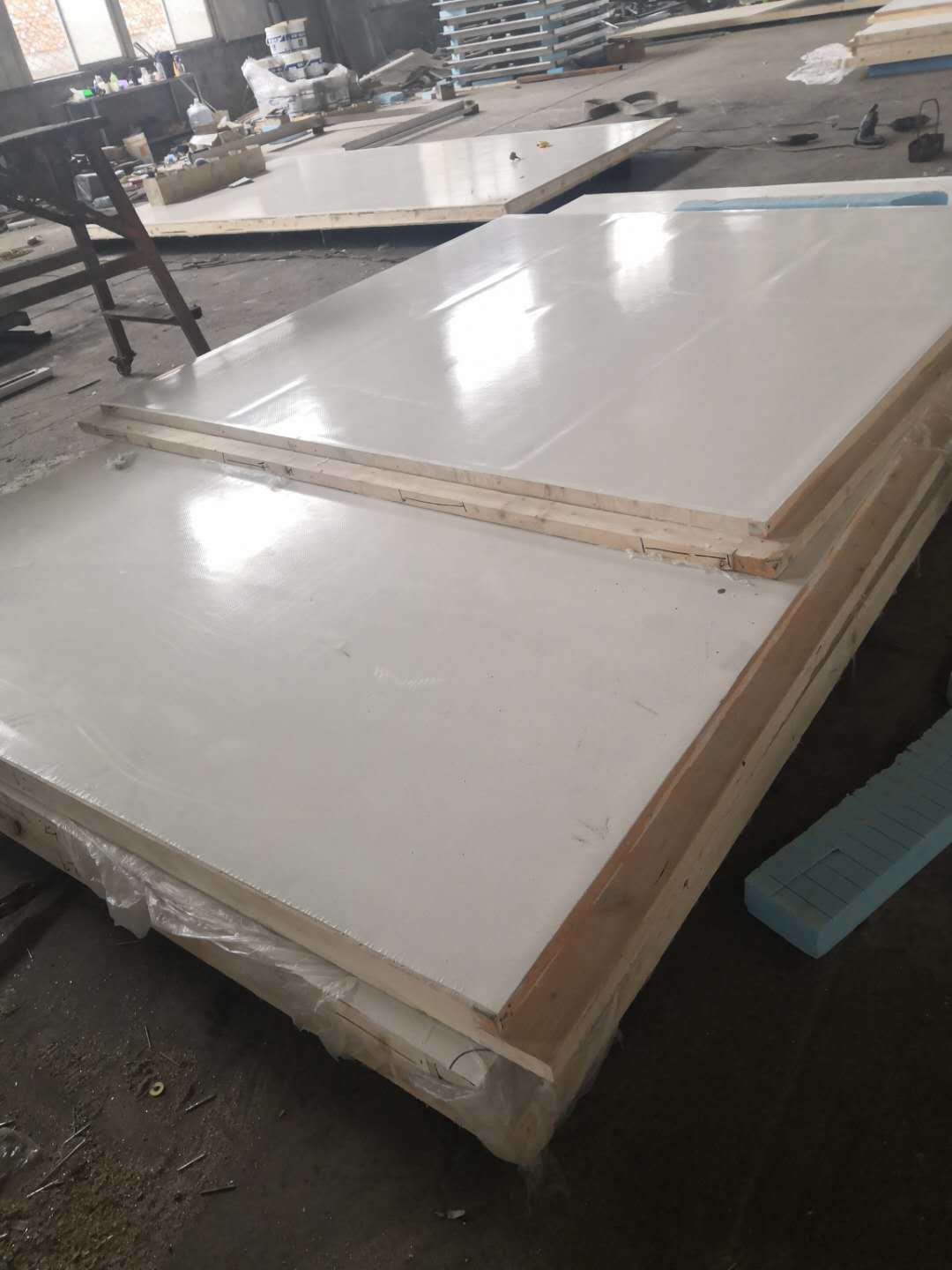Understanding the Maintenance Needs of Your Refrigerated Truck Body: A Comprehensive Guide
Release time:
2025-08-14

Understanding the Maintenance Needs of Your Refrigerated Truck Body
Table of Contents
- Introduction to Refrigerated Truck Bodies
- The Importance of Regular Maintenance
- Key Components of Refrigerated Truck Bodies
- Routine Inspections: What to Look For
- Maintaining the Cooling System Effectively
- Checking and Maintaining Insulation
- Implementing Preventative Maintenance Strategies
- Common Issues and How to Solve Them
- Frequently Asked Questions
- Conclusion: Ensuring Longevity for Your Refrigerated Truck
Introduction to Refrigerated Truck Bodies
Refrigerated trucks, often referred to as reefer trucks, are essential for transporting perishable goods. These specialized vehicles maintain a specific temperature range to ensure the safety and quality of products during transit. Given the vital role these trucks play in the supply chain, understanding their maintenance needs is crucial for operators and fleet managers alike.
Regular maintenance not only extends the lifespan of the truck body but also enhances the efficiency of the cooling system, ultimately reducing operational costs. This guide provides a comprehensive overview of the maintenance practices necessary for keeping your refrigerated truck body in optimal condition.
The Importance of Regular Maintenance
Neglecting the maintenance of refrigerated truck bodies can lead to a multitude of issues, including equipment failure and spoilage of transported goods. Implementing a regular maintenance schedule helps prevent unexpected breakdowns, ensuring that your operations run smoothly. Here are some key reasons why routine maintenance is essential:
Enhanced Operational Efficiency
A well-maintained refrigerated truck operates more efficiently, reducing fuel consumption and lowering emissions. Regular checks contribute to optimal performance, ensuring that the cooling system functions effectively.
Prolonged Lifespan
Investing in regular maintenance extends the overall lifespan of your refrigerated truck body. This means fewer replacements and repairs in the long run, resulting in significant cost savings.
Compliance with Regulations
Many industries have strict regulations governing the transportation of perishable goods. Regular maintenance helps ensure compliance with these standards, protecting your business from potential fines and legal issues.
Key Components of Refrigerated Truck Bodies
Understanding the key components of refrigerated truck bodies is essential for effective maintenance. Here are the primary elements to focus on:
Cooling System
The cooling system is the heart of any refrigerated truck, responsible for maintaining the desired temperature. Regular checks on the compressor, evaporator, and condenser are vital for ensuring its efficiency.
Insulation
High-quality insulation is critical for retaining temperature within the truck body. Any damage or wear to the insulation can lead to temperature fluctuations, compromising the integrity of transported goods.
Seals and Gaskets
Seals and gaskets prevent cold air from escaping and warm air from entering the truck body. Regularly inspecting and replacing worn seals is vital for maintaining efficiency.
Electrical Systems
The electrical systems control various components of the refrigerated truck, including temperature monitoring and alarms. Ensuring these systems are functioning correctly is critical for safety and performance.
Routine Inspections: What to Look For
Performing routine inspections is a proactive approach to maintenance. Here’s a checklist of what to look for during these inspections:
Exterior and Structural Integrity
Inspect the exterior for any visible damage, such as dents or rust. Check for any cracks or signs of wear in the truck body that could affect its functionality.
Cooling Unit Functionality
Test the cooling unit to ensure it reaches the desired temperature. Monitor the performance during operation to detect any irregularities.
Insulation Condition
Check the insulation for any signs of wear, moisture intrusion, or damage. Proper insulation is essential for maintaining temperature consistency.
Hoses and Connections
Inspect hoses and connections for leaks or wear. Replacing damaged hoses promptly can prevent significant issues down the line.
Maintaining the Cooling System Effectively
The cooling system requires meticulous care to function optimally. Here are some essential maintenance practices:
Regular Cleaning
Dirt and debris can accumulate on the condenser coils, affecting cooling efficiency. Regularly cleaning these components is vital for optimal performance.
Checking Refrigerant Levels
Low refrigerant levels can cause the cooling system to malfunction. Regularly check and refill refrigerant as necessary, adhering to manufacturer specifications.
Compressor Maintenance
The compressor requires routine checks for functionality. Listen for unusual noises and monitor performance to ensure it operates efficiently.
Checking and Maintaining Insulation
Proper insulation is crucial for maintaining temperature. Here’s how to ensure your insulation remains effective:
Inspection for Damage
Regularly inspect insulation panels for tears, moisture, or other damage. Any compromised insulation must be repaired or replaced immediately.
Sealing Gaps
Ensure that joints and edges are sealed properly. Gaps can lead to significant temperature loss, affecting the goods being transported.
Moisture Control
Control moisture levels within the truck to prevent mold and mildew, which can compromise insulation and contaminate the cargo.
Implementing Preventative Maintenance Strategies
Adopting a preventative maintenance strategy can help avoid costly repairs and maximize the lifespan of your refrigerated truck body. Here are key strategies to consider:
Scheduled Maintenance Plans
Create a detailed maintenance schedule that outlines specific tasks, frequencies, and responsibilities. This ensures that nothing is overlooked.
Training for Drivers and Staff
Invest in training for drivers and maintenance staff. They should understand the importance of regular checks and be able to recognize early warning signs of potential issues.
Utilizing Technology
Incorporate technology such as telematics systems to monitor performance and alert you to issues in real-time. This proactive approach can prevent breakdowns and improve overall efficiency.
Common Issues and How to Solve Them
Even with a comprehensive maintenance plan, issues may arise. Here are common problems and their solutions:
Temperature Fluctuations
**Problem:** Inconsistent temperatures can lead to spoiled goods.
**Solution:** Check for air leaks, faulty thermostats, or refrigerant issues. Regularly calibrate temperature monitoring systems.
Unusual Noises from the Cooling Unit
**Problem:** Strange sounds can indicate mechanical failure.
**Solution:** Inspect the compressor and fan for issues. Address any irregularities immediately to prevent further damage.
Condensation Issues
**Problem:** Excess moisture can damage cargo and reduce insulation effectiveness.
**Solution:** Ensure proper insulation and ventilation. Regularly check for any signs of water intrusion and address them promptly.
Frequently Asked Questions
What are the signs that my refrigerated truck body needs maintenance?
Common signs include temperature fluctuations, unusual noises from the cooling system, visible damage to the truck body, and condensation buildup.
How often should I perform maintenance on my refrigerated truck?
Routine inspections should be conducted monthly, with more comprehensive maintenance checks annually or based on manufacturer recommendations.
Can I perform maintenance on my refrigerated truck body myself?
While minor checks can be performed by operators, complex maintenance tasks should be handled by qualified technicians to ensure safety and compliance.
What is the average lifespan of a refrigerated truck body?
With proper maintenance, a refrigerated truck body can last anywhere from 10 to 20 years, depending on usage and care.
How can I improve the efficiency of my refrigerated truck?
Regular maintenance, ensuring proper insulation, and utilizing technology to monitor performance can all contribute to improved efficiency.
Conclusion: Ensuring Longevity for Your Refrigerated Truck
Understanding and implementing effective maintenance strategies for your refrigerated truck body is vital for ensuring its longevity and efficiency. By focusing on regular inspections, proper care of the cooling system and insulation, and developing a robust preventative maintenance plan, you can significantly reduce the risk of breakdowns and spoilage of goods. Prioritizing these practices will not only enhance operational efficiency but also lead to substantial cost savings over time. Remember, the key to a successful operation lies in the details—stay proactive, stay informed, and keep your refrigerated truck in peak condition.
Previous
Previous
Understanding the Maintenance Needs of Your Refrigerated Truck Body: A Comprehensive Guide
Understanding the Maintenance Needs of Your Refrigerated Truck Body Table of Contents Introduction to Refrigerated Truck Bodies The Importance of Regular Maintenance Key Components of Refrigerated Truck Bodies Routine Inspections: What to Look For Maintaining the Cooling System Effectively Checking and Maintaining Insulation Implementing Preventative Maintenance Strate
2025-08-14

Light Truck Body Innovations You Need to Know About
Light Truck Body Innovations You Need to Know About In the rapidly evolving world of automotive technology, light trucks are undergoing significant transformations. These vehicles, which serve both commercial and recreational purposes, are becoming more efficient, durable, and versatile than ever before. This article delves into the latest innovations in light truck body design and materials, ex
2025-08-04

Unlocking Efficiency: How a Custom Light Truck Body Can Transform Your Workflow
How a Custom Light Truck Body Can Boost Your Efficiency Table of Contents 1. Introduction to Custom Light Truck Bodies 2. Advantages of Custom Light Truck Bodies - 2.1 Increased Efficiency and Productivity - 2.2 Cost-Effectiveness and ROI 3. Design Options for Custom Light Truck Bodies - 3.1 Materials Used in Custom Designs - 3.2 Essential Accessories for Your Truck Bod
2025-07-25

 Esperanto
Esperanto
 Shqiptare
Shqiptare
 Euskara
Euskara
 Zulu
Zulu
 Latinus
Latinus
 Cymraeg
Cymraeg
 தமிழ்
தமிழ்
 Slovak
Slovak
 Slovak
Slovak
 Afrikaans
Afrikaans
Xiamen Sungrow Sheet Metal Technology Co., Ltd.
WhatsApp: 86-15880206937
Email: sales2@sungrowsn.com
Add: No.299, Hongtangli Road, Hongtang Town, Tong'an District, Xiamen, Fujian, P.R.China.




